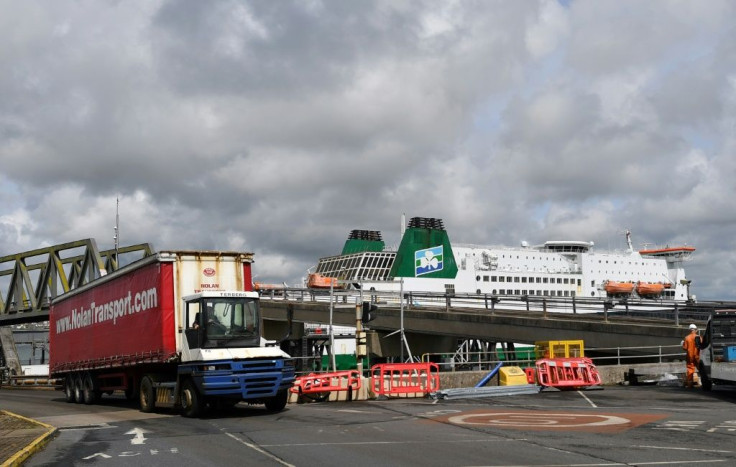'Going to waste': UK shipyard braces for Brexit turmoil

Welsh businessman Stewart Graves is certain that a no-deal Brexit will shut down his marine renewable energy plant currently testing its prototypes in the Irish Sea.
The entrepreneur's Milford Haven shipyard and its 80 workers also make sensitive communication masts that British warships will use to track enemy submarines.
Graves fears that many of these designers and engineers will soon be out of work.
"We are world leaders in renewable technologies and that is all going to waste," Graves told AFP during a tour of his Mainstay Marine Solutions.
The possibility of a no-deal Brexit on October 31 would mean "this company will almost certainly have to go out of business," he said.
"They are prepared to let it die."
'The dogma of Brexit'
It would mark a premature end for a leading company in a 205-year-old dockyard that has built royal yachts and warships.
Mainstay Marine Solutions and scores of other Welsh businesses depend on the help of investments from the European Union.
The money is meant to spur growth in one of the poorest corners of Europe -- a region whose problems pushed voters to strongly back Brexit in 2016.
Graves's business is especially sensitive to the divorce.
Brussels has fed the plant with "match-funding" for projects harnessing the power of waves and tides into electricity that feeds directly into the national grid.
Graves always knew the EU money would dry up once Britain left the other 27 nations and doubts that London will step in when Brussels bows out.
"There is little opportunity for us to survive losing 40 percent of our business and having no market in Europe to be able to go into because of tariffs," he said.
"If you really want to make Britain great, don't waste it on the dogma of Brexit and leaving on October 31."
Britain's business and energy department did not respond to a request for comment.
'Free ports'
Graves works out of a dockyard that is one of 10 earmarked by Prime Minister Boris Johnson's government to become exempt from import tariffs as a "free port" -- a business-boosting idea given greater freedom outside EU rules.
Port of Milford Haven chief executive Andy Jones sees some irony in new trade initiatives emerging just as Britain is withdrawing from the rest of the Europe.
"It's taken Brexit for the ports industry to be recognised for how important a role it plays in trade," Jones said in his office overlooking the towering chimneys of a fuel refinery on the opposite site of the bay.
"Global trade is going to continue regardless. It's a bit of a cliche, but we live on an island. Ninety-five percent of all trade in the UK goes through ports and that's not going to change."
Some economists question the ability of Johnson's "free ports" to actually stimulate trade.
Seven have been tried across Britain between 1984 and 2012.
These were bound by the more stringent confines of EU regulations -- and all eventually shut down.
Jones argues that Johnson's idea would work better if it was expanded to cover entire cities or regions around the port.
"Simplified planning, improved connectivity and economic investments. It's a 'free port plus'," Jones said.
'Leading edge'
Yet the mood around Milford Haven port's businesses is dour.
The fuel refinery looming on the opposite side of the bay from Jones's office has joined Britain's five others in warning Johnson that a no-deal could threaten its operations.
Johnson has promised to import EU fuel into Britain tariffs-free to avoid price shock at the pump and avert inflation. Yet the fuel exported from Milford Haven would face a 4.7-percent tax on entry into the EU.
Local legislators fear that the competitive disadvantage could see some of the refinery's 500 workers lose their jobs.
And Graves knows that his shipyard cannot survive without London stepping in and maintaining the same level of support as that offered by Brussels.
"We're not talking about subsidising a dying industry," Graves argued.
"We're talking about investing in technology in the leading edge in a field."
© Copyright AFP 2024. All rights reserved.





















